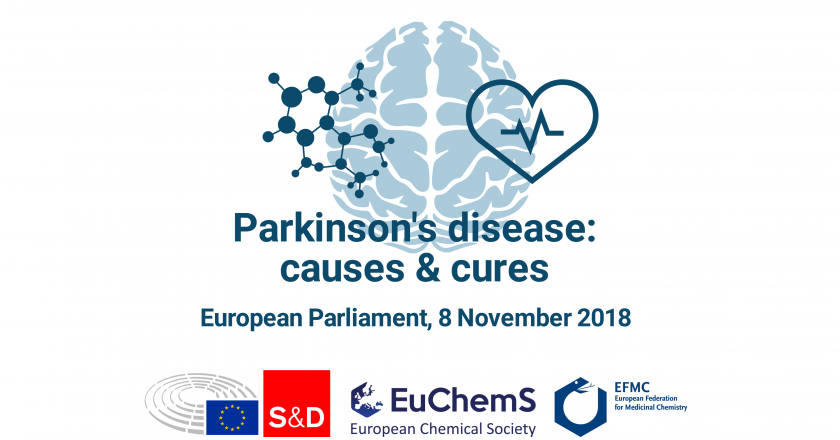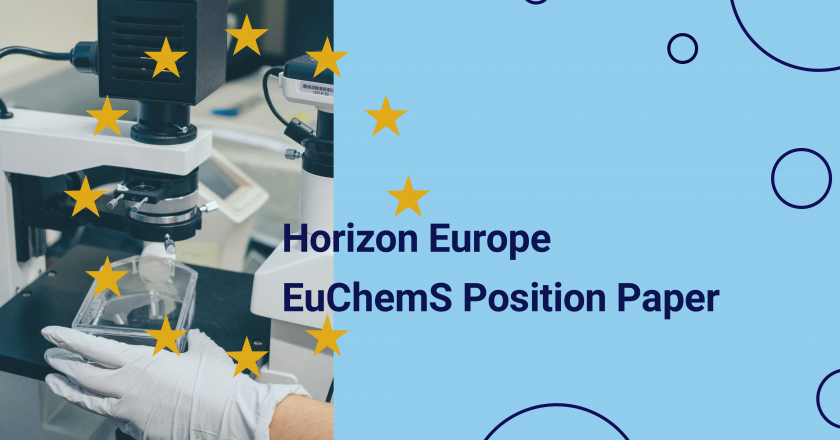 On 26 August, close to 1500 participants came together in the city of Liverpool, UK, to share their enthusiasm and passion for the wide field of Chemistry. Over 5 days, an outstanding line-up of speakers shared their latest research and discoveries, whilst students and early-career chemists from across the world displayed their findings and work through inspiring posters.
On 26 August, close to 1500 participants came together in the city of Liverpool, UK, to share their enthusiasm and passion for the wide field of Chemistry. Over 5 days, an outstanding line-up of speakers shared their latest research and discoveries, whilst students and early-career chemists from across the world displayed their findings and work through inspiring posters.
The Congress highlighted two major dynamics. Firstly, that the field of Chemistry is vast, complex, increasingly blurring discipline boundaries, but also that it is vital in providing solutions and answers to a whole array of topics – from health to energy, from environmental protection to sustainable and efficient industrial processes. Secondly, the Congress enabled the coming together of chemists, researchers, scientists from other fields, students, exhibitors, and more, from across the world. Throughout the week, we were able to chat with chemists from as close by as Liverpool itself, to Russia, Nigeria, and chemists from the US, China, Australia, and of course from across Europe. This gathering of people from different countries and from different backgrounds is a crucial aspect of the EuChemS congresses, allowing communication, interaction and networking opportunities, and therefore better understanding and cooperation between scientists.
Congress enabled the coming together of chemists, researchers, scientists from other fields, students, exhibitors, and more, from across the world. Throughout the week, we were able to chat with chemists from as close by as Liverpool itself, to Russia, Nigeria, and chemists from the US, China, Australia, and of course from across Europe. This gathering of people from different countries and from different backgrounds is a crucial aspect of the EuChemS congresses, allowing communication, interaction and networking opportunities, and therefore better understanding and cooperation between scientists.
It was encouraging to see young researchers, early-career chemists and st udents demonstrating their passion for their work through their posters and the many discussions they had between themselves as well as with senior members of the community. The workshops and sessions organised by the European Young Chemists’ Network (EYCN) in turn provided unique opportunities to better prepare for the future and a platform to exchange ideas and experiences with experienced colleagues.
udents demonstrating their passion for their work through their posters and the many discussions they had between themselves as well as with senior members of the community. The workshops and sessions organised by the European Young Chemists’ Network (EYCN) in turn provided unique opportunities to better prepare for the future and a platform to exchange ideas and experiences with experienced colleagues.
In addition to working in a lab, industrial plant or teaching the subject, chemists are also looking to better communicate their work – whether to the public, children, or policymakers. Being able to simply communicate research aims and outcomes is an increasingly sought-after skill, and we were glad to see so much engagement during the joint EuChemS – American Chemical Society – Royal Society of Chemistry (RSC) – German Chemical Society (GDCh) session on science communication. The interactive activities of the RSC on the streets of Liverpool was yet another wonderful example of bringing chemistry closer to citizens.
The EuChemS Congress also displayed chemists’ concerns for societal challenges and their contribution to solutions. In a joint panel debate by EuChemS and the American Chemical Society (ACS), the UN Sustainable Development Goals were discussed as well as Chemistry’s role in providing steps forward to achieving them. Speakers highlighted the changing landscape for an increasingly global workforce, from the transformations educational systems are undergoing, to the role of global standards in ensuring quality education, as well as the role scientific integrity and ethics play. 
We hope that each one of you who was able to attend was as inspired as we were, whether by the stimulating talks, sessions, workshops and plenaries, or by the networking opportunities and the chance to speak with fellow chemists from around the globe, or simply by the breath-taking splendour of the dinner venue in the Liverpool Cathedral!
And if you missed this year’s Congress, or simply can’t wait for the next, fret not! From 30 August to 3 September 2020, the EuChemS community will head to Lisbon in Portugal for an unforgettable 8th EuChemS Chemistry Congress!
For more articles, debriefs, videos and more, make sure to take a look at the 7th EuChemS Chemistry Congress website, social media and watch videos here!



 On 26 August, close to 1500 participants came together in the city of Liverpool, UK, to share their enthusiasm and passion for the wide field of Chemistry. Over 5 days, an outstanding line-up of speakers shared their latest research and discoveries, whilst students and early-career chemists from across the world displayed their findings and work through inspiring posters.
On 26 August, close to 1500 participants came together in the city of Liverpool, UK, to share their enthusiasm and passion for the wide field of Chemistry. Over 5 days, an outstanding line-up of speakers shared their latest research and discoveries, whilst students and early-career chemists from across the world displayed their findings and work through inspiring posters. Congress enabled the coming together of chemists, researchers, scientists from other fields, students, exhibitors, and more, from across the world. Throughout the week, we were able to chat with chemists from as close by as Liverpool itself, to Russia, Nigeria, and chemists from the US, China, Australia, and of course from across Europe. This gathering of people from different countries and from different backgrounds is a crucial aspect of the EuChemS congresses, allowing communication, interaction and networking opportunities, and therefore better understanding and cooperation between scientists.
Congress enabled the coming together of chemists, researchers, scientists from other fields, students, exhibitors, and more, from across the world. Throughout the week, we were able to chat with chemists from as close by as Liverpool itself, to Russia, Nigeria, and chemists from the US, China, Australia, and of course from across Europe. This gathering of people from different countries and from different backgrounds is a crucial aspect of the EuChemS congresses, allowing communication, interaction and networking opportunities, and therefore better understanding and cooperation between scientists. udents demonstrating their passion for their work through their posters and the many discussions they had between themselves as well as with senior members of the community. The workshops and sessions organised by the European Young Chemists’ Network (EYCN) in turn provided unique opportunities to better prepare for the future and a platform to exchange ideas and experiences with experienced colleagues.
udents demonstrating their passion for their work through their posters and the many discussions they had between themselves as well as with senior members of the community. The workshops and sessions organised by the European Young Chemists’ Network (EYCN) in turn provided unique opportunities to better prepare for the future and a platform to exchange ideas and experiences with experienced colleagues.


You must be logged in to post a comment.